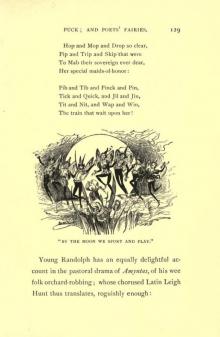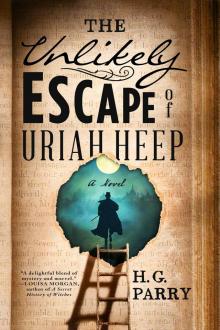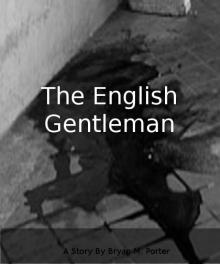Brownies and Bogles


Author: Louise Imogen Guiney
Category: Other2
Published: 2012
Series:
View: 400
Read OnlineFAIRY is a humorous person sadly out of fashion at present, who has had, nevertheless, in the actors' phrase, a long and prosperous run on this planet. When we speak of fairies nowadays, we think only of small sprites who live in a kingdom of their own, with manners, laws, and privileges very different from ours. But there was a time when "fairy" suggested also the knights and ladies of romance, about whom fine spirited tales were told when the world was younger. Spenser's Faery Queen, for instance, deals with dream-people, beautiful and brave, as do the old stories of Arthur and Roland; people who either never lived, or who, having lived, were glorified and magnified by tradition out of all kinship with common men. Our fairies are fairies in the modern sense. We will make it a rule, from the beginning, that they must be small, and we will put out any who are above the regulation height. Such as the charming famous Melusina, who wails upon her tower at the death of a Lusignan, we may as well skip; for she is a tall young lady, with a serpent's tail, to boot, and thus, alas! half-monster; for if we should accept any like her in our plan, there is no reason why we should not get confused among mermaids and dryads, and perhaps end by scoring down great Juno herself as a fairy! Many a dwarf and goblin, whom we shall meet anon, is as big as a child. Again, there are rumors in nearly every country of finding hundreds of them on a square inch of oak-leaf, or beneath the thin shadow of a blade of grass. The fairies of popular belief are little and somewhat shrivelled, and quite as apt to be malignant as to be frolicsome and gentle. We shall find that they were divided into several classes and families; but there is much analogy and vagueness among these divisions. By and by you may care to study them for yourselves; at present, we shall be very high-handed with the science of folk-lore, and pay no attention whatever to learned gentlemen, who quarrel so foolishly about these things that it is not helpful, nor even funny, to listen to them. A widely-spread notion is that when our crusading forefathers went to the Holy Land, they heard the Paynim soldiers, whom they fought, speaking much of the Peri, the loveliest beings imaginable, who dwelt in the East. Now, the Arabian language, which these swarthy warriors used, has no letter P, and therefore they called their spirits Feri, as did the Crusaders after them; and the word went back with them to Europe, and slipped into general use.
 The Sentinel
The Sentinel DI Mitchell Yorkshire Crime Thrillers: Book 1-3
DI Mitchell Yorkshire Crime Thrillers: Book 1-3 The Unlikely Escape of Uriah Heep
The Unlikely Escape of Uriah Heep Through the Eyes of the Phoenix
Through the Eyes of the Phoenix The English Gentleman
The English Gentleman Final Ride
Final Ride Fate's Falling (Satan's Sinners MC Book 8)
Fate's Falling (Satan's Sinners MC Book 8) The One I'm With
The One I'm With